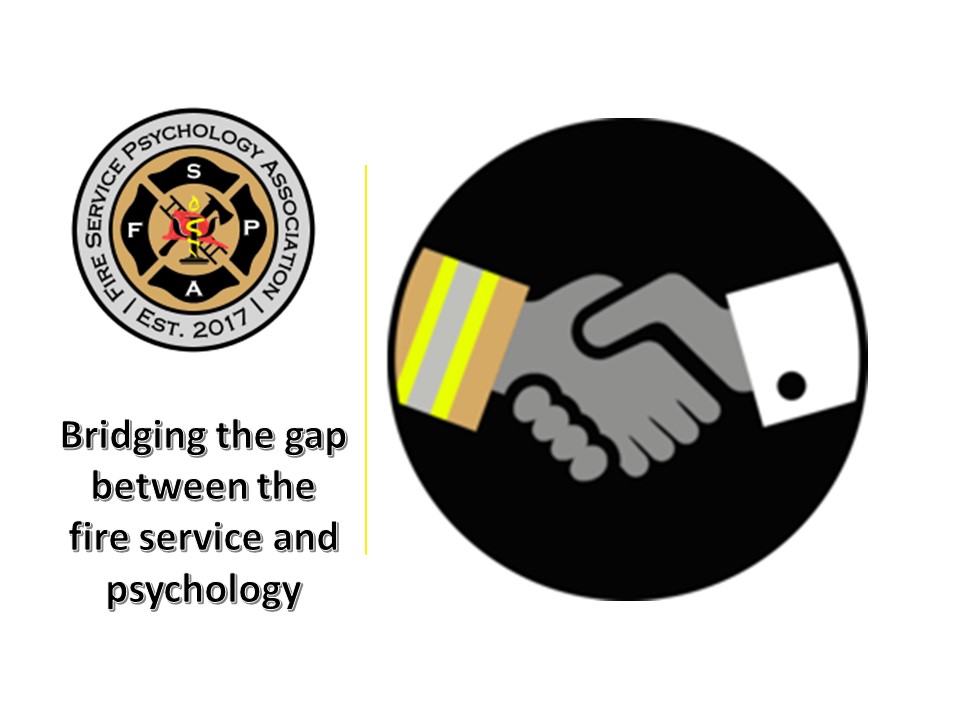I’ve been a fire service member of the Fire Service Psychology Association (FSPA) since 2018 and it’s been an informative, educational, and fulfilling experience seeing how fire service leaders and psychologist and other mental health clinicians are working to “build a bridge between professional psychology and the fire service.” However, in the five-plus years I’ve been a member of FSPA I never really gave serious thought to “Why did I join FSPA?”
Jeff Stapleton is one of the newest members of FSPA (Like six days old as a FSPA member!) and when I read his Member Profile on the FSPA website I was “blown away!” I think you will be as well. So, without further ado, take it away Jeff!
I am currently working as a firefighter/paramedic in Arizona and am also a psychology student working towards my doctorate in psychology. Just in the beginning stages of psychology [education] but [I’m] heading in the right direction. I joined FSPA because:
- Professional Development: Joining the association offers opportunities for ongoing education, training, and professional development. This includes access to workshops, seminars, and resources that enhance your knowledge and skills in the field of fire service psychology. (Check out the Speakers and Topics from FSPA’s 6th Annual Conference that took place in Atlanta, Georgia, October 2023).
- Networking: Being part of the association allows me to connect with like-minded professionals, both within and outside your immediate work environment. Networking provides valuable insights, collaboration opportunities, and a sense of community within the field.
- Stay Informed: Associations provide members with updates on the latest research, trends, and best practices in fire service psychology. This keeps me informed about advancements in the field and helps me stay current with relevant information.
- Peer Support: Fire service psychology can be a challenging field, and having a network of peers facing similar issues can provide a valuable support system. The association may facilitate communication and collaboration among members, fostering a sense of camaraderie.
- Advocacy: Associations advocate for the interests and concerns of their members at a broader level. Being part of such an organization allows me to contribute to the collective voice, helping to shape policies and practices in the field.
- Contribution to the Field: By participating in the association, I will have the opportunity to contribute my own experiences, research, or insights to the broader field of fire service psychology. This will be a fulfilling way to give back and contribute to the growth of the profession.
Pretty impressive list, right? And you don’t have to be pursuing a degree in psychology in order to join FSPA–though we have several firefighters and officers who are pursuing degrees in psychology–you just have to want the same things Jeff was looking for!
Learn more about FSPA–including how to join!–at www.firepsychology.org
 Fire & EMS Leader Pro The job of old firefighters is to teach young firefighters how to become old firefighters!
Fire & EMS Leader Pro The job of old firefighters is to teach young firefighters how to become old firefighters!

